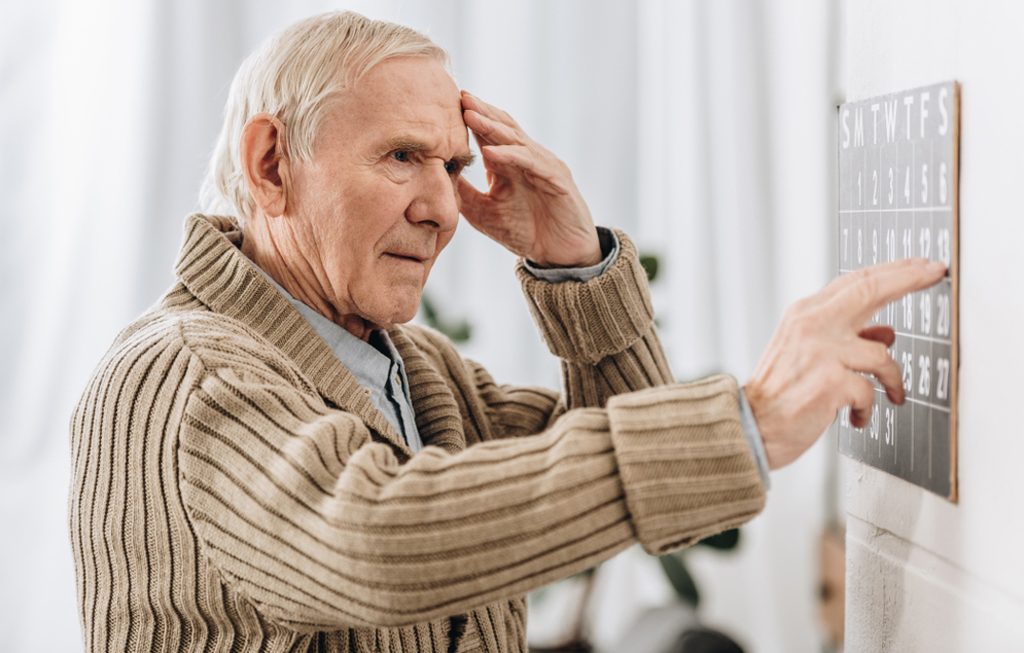
What is Dementia?
Dementia is a chronic brain disorder characterized by the loss of cognitive functioning as well as behavioral abilities, which interferes with a person’s daily life.
Some cognitive functions that dementia affects include memory, language skills, visual perception, problem solving, self-management and the ability to focus one’s attention. In terms of behavior, dementia patients may occasionally lose control of their emotions and their personalities may undergo extreme changes.
Dementia is caused by the atrophy (cell death) of nerve cells or neurons in the brain. When these neurons lose connections with other brain cells, they cease to function and waste away. Even though we all lose some neurons as we age, dementia is a result of an excessive loss of these cells. Dementia is also not a normal part of aging despite it being more prevalent in older people—many people live well into their nineties without suffering any symptoms characteristic of dementia.
8 Signs of Dementia

Just because someone displays some form of memory loss does not necessarily equate to them having dementia. A patient needs to display at least two of the eight types of impairment to be diagnosed as such. The eight impairments are:
- Short-term memory loss. Being able to remember events that occurred long ago but not what happened earlier in the morning is an early symptom of dementia.
- Loss for words. Another early symptom of dementia, patients often find difficulty using the right words to express themselves, or are unable to recall meanings of words or follow conversations.
- Mood changes. An onset of depression is typical of early dementia. A personality shift can also occur, such as from being shy to outgoing suddenly.
- Apathy. A loss of interest in one’s hobbies or activities, patients may no longer wish to socialize or spend time with friends and family.
- Confusion. Lapses in memory, thinking or judgment. Sometimes, patients are even unable to remember faces.
- Failing sense of direction. People with dementia suffer a decline in their sense of direction and spatial orientation. The inability to recognize familiar landmarks is one example, or forgetting regular destinations and routes.
- Being repetitive. Caused by memory loss and confusion, dementia patients may repeat daily tasks they have already done, like brushing their teeth. Repeating questions that have already been answered is another symptom of repetitiveness.
- Sticking to routine. They are unable to adapt to change, preferring to stick with the tried and true as they are afraid of new experiences.
Common Types of Dementia
Alzheimer’s disease. The most common form of dementia in geriatrics, Alzheimer’s refers to progressive memory loss and other cognitive disabilities that impede daily functions. This slow-progressing disease has been theorized to affect the brain long before any observable symptoms occur.
Vascular dementia. Second in terms of prevalence, vascular dementia is caused by vascular disease, including conditions arising from stroke, high blood pressure and cholesterol, diabetes and other vascular brain injuries. These cause significant impairments to memory, thinking and behavior.
Parkinson’s disease. The most well-known symptom of this disease is the display of tremors, involuntary and rhythmic movement of one body part or more. As the disease worsens, symptoms become similar to that of Alzheimer’s. Parkinson’s also causes alpha-synuclein to clump deep within the brain and prevent dopamine from being produced.
Huntington’s disease. A single defective gene on chromosome 4 causes this progressive brain disorder to develop. Symptoms include a severe drop in thinking and reasoning skills, as well as mood changes like unusual displays of irritability and depression which, over time, usually worsen.
Preventive Measures

Ageing is the biggest risk factor for dementia, but a combination of healthy lifestyle changes can reduce the risk. These changes include keeping active, quitting smoking and exercising your brain.
Physical activity is the best way to reduce the risk of dementia. It’s good for your heart, blood circulation, weight and overall wellbeing. Start with a small amount of activity—10 minutes is still beneficial. Avoid sitting for long periods of time and being sedentary.
Stop smoking as it harms blood circulation, especially blood vessels in the brain. This puts you at a higher risk of developing dementia.
Finally, keeping your mind active also reduce your risk of developing dementia. Mental challenges help reinforce the brain to cope with the disease, so try learning something new or read intellectually stimulating books. Socialising also helps keep dementia at bay; communicate with others and stay in touch with friends and family, or join communities to make new friends and ideas.





